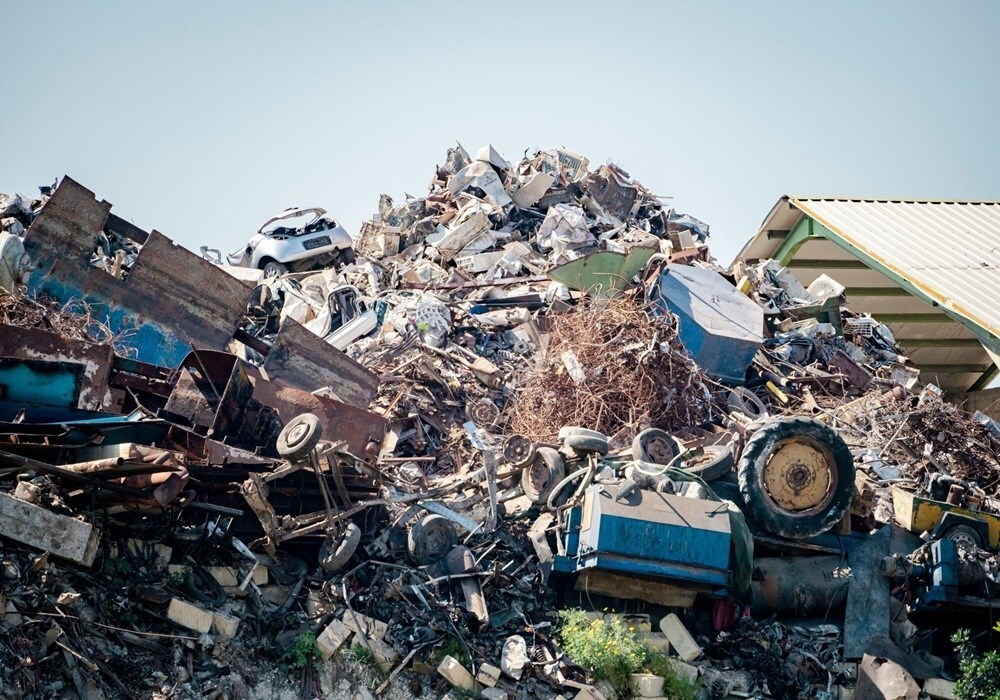您想继续阅读英文文章还
是切换到中文?
是切换到中文?

THINK ALUMINIUM THINK AL CIRCLE

Recycled Materials Association (ReMA), a sustainable recyclable advocacy group, has approved a new aluminium scrap grade called “vesper,” marking a notable shift in how the industry handles the wrought fraction found in end-of-life (EOL) vehicles and other complex scrap streams. The update to the ISRI specifications was developed with Novelis and key aluminium recycling partners. The goal behind approving this new scrap grade is to create a clean, high-value scrap stream that can return to sheet, extrusion, and plate applications without being contaminated by cast alloys.

Rising demand for wrought aluminium, leading to a birth of Vesper
Demand for aluminium across mobility, packaging, and infrastructure is rising fast. Automotive trends show the sharpest rise. Ducker Carlisle, a global consulting firm, forecasts aluminium use per vehicle at 556 lbs by 2030, up from 120 lbs in 1980. This shift is driven by lightweighting and decarbonisation targets. Much of this demand now depends on post-consumer scrap, which cuts the carbon footprint of new metal.
Explore- Most accurate data to drive business decisions with 50+ reports across the value chain
EOL vehicles feed today’s Zorba and Twitch streams. Zorba carries 70–90 per cent aluminium mixed with other metals. Twitch, sorted from Zorba, typically contains 91–93 per cent aluminium but is still a blend of cast and wrought alloys. Any wrought aluminium content in twitch has historically been downcycled away from its original form and repurposed into cast products. Once this happens, it can no longer be recycled into new sheets or extrusions.
As aluminium-intensive vehicles such as Ford’s F-150 begin reaching end of life, wrought alloy content is being found in twitch compared to cast alloys. Now, the responsibility lies on companies like Novelis to recover this wrought material instead of allowing it to be downcycled.
Vesper targets this gap. It defines a stream made only of wrought alloy,sheet, extrusion, or plate, segregated from zorba or twitch, with strict limits that preserve melt compatibility. According to ReMA, vesper must contain no more than one per cent free magnesium, one per cent free zinc, 0.5 per cent free iron, and one per cent free non-metallics. It must also be dry and free of heavily oxidised items, airbag canisters, or sealed or pressurised containers. These guardrails ensure the scrap can feed directly back into sheet and extrusion applications without quality loss.
How the specification took shape
Advanced sorting technologies like X-ray fluorescence (XRF), X-ray transmission (XRT), laser-induced breakdown spectroscopy (LIBS), and optical sortation with artificial intelligence (AI) have made Vesper possible. Novelis and partners carried out multi-year trials to validate the process.
According to Emily Sanchez, chief economist at ReMA, the development moved quickly:
“The entire process from initiation to final acceptance into the ReMA Specifications was six months.” The review involved committees, industry-wide consultation, and two public-notice periods before final approval.
Read More: When recycled AL is the mirror: A month of energy, inequality, and the cost of industrial change
The value proposition for the industry
“The vesper specification was created to draw attention to the market need for a new scrap stream explicitly focused on recycling the wrought fraction of twitch,” said Bea Landa, vice president of Metal Procurement and Recycling, Novelis North America.
Producing vesper creates a domestic market for wrought scrap that was previously exported as twitch. It supports circularity by enabling wrought-to-wrought recycling rather than downcycling into cast alloys. Gallo added that this shift “helps to keep critical raw materials from leaving the country.”
The transition will require investment. Recyclers producing zorba may need multiple sorting units. Twitch processors will likely add one advanced sorter. Wrought producers will update melt practices to absorb the new scrap.
Yet adoption is expected to be smooth. “Since this material is currently being traded, the industry already acknowledges vesper as a specification,” said Sanchez.
Market potential is significant. Landa estimates that several hundred thousand tonnes per year could become available in North America. Industry education will be key to unlocking that volume, and Novelis is working with the Aluminium Association to accelerate uptake.
Must read: Key industry individuals share their thoughts on the trending topics
Responses








